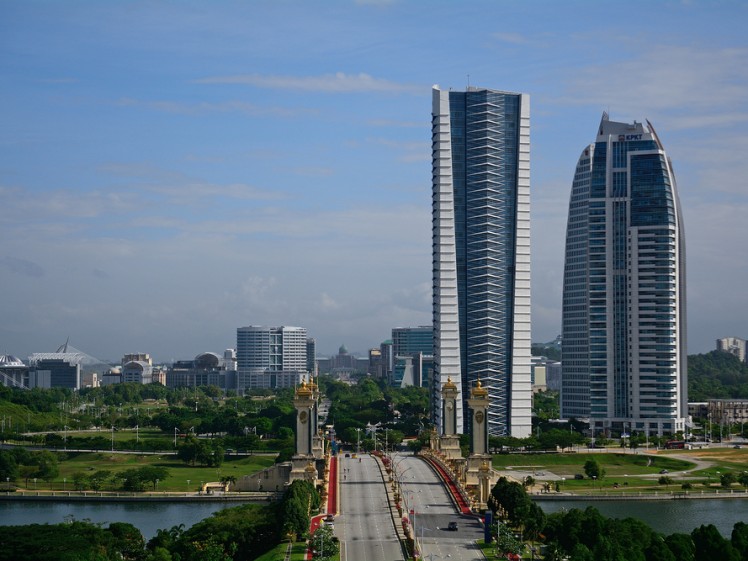Most expat spouses leave their jobs behind when accompanying their partners abroad. More often than not, they cannot continue their careers and thus lose their professional identity.
According to Expat Insider published by InterNations, 60 percent find giving up their career difficult and 65 percent dislike being financially dependent on their spouse. Many expat spouses also have higher education with 47 percent having a post-graduate degree or a Ph.D. It’s no wonder they feel ‘limited’ in their role as an expat spouse!
In Malaysia, it’s no different. Many expat spouses put their careers on hold when moving because of working restrictions in the country, including needing a work permit. However, there are other potential options: for example, starting a business or becoming a freelancer.
Working in Malaysia

Elisabeth Laubel, founder of www.all1kl.com, a career management company that specialises in helping foreigners work in Southeast Asia, believes that one of two main obstacles expat spouses face when looking for jobs is managing their time. She says, “More expatriate spouses, especially those with children, want to work on a part time basis, but this is difficult in Malaysia as it’s not part of the culture.”
The other obstacle is, of course, the visa. As many expats are aware, getting a work permit can be challenging. Identifying companies willing to provide work permits is therefore paramount in securing a job. Laubel explains, “Many expatriates who are looking for jobs tend to apply everywhere, including companies that cannot hire foreigners and so cannot process a work visa.”
Laubel’s expertise lies in identifying which companies can issue employment passes, so expats can maximize their chances during job applications. She gives the example of international companies: “Although they are big companies and they hire expatriates from abroad, they also have a commitment to help create jobs in the country in which they operate.” She adds, “This is a general rule, but there is always an exception.”
Exception to this rule is what helped one expat partner get a job in Malaysia. John, not his real name as he prefers to be anonymous, applied for many jobs through companies’ HR departments before moving to Malaysia with no success. He says, “Job vacancies were advertised and re-advertised but I was not considered.”
Once in Malaysia, he sent his application directly to line managers and was immediately called for interviews. His advice to get employed is “once in Malaysia, apply directly to line managers, accept a local salary if offered, and wait a few months for the work permit to be processed.”
Starting a Business
While starting a business and becoming an entrepreneur may sound exciting, there are a few important rules to consider. According to Laubel, there two types of companies’ foreigners can set up in Malaysia: a Sdn Bhd (Sendirian Berhad), malay for ‘private limited’, or a limited liability partnership ( LLP).
She explains that the paid up capital for a Sdn Bhd is now RM1million, compared to RM500, 000 last year. A Sdn Bhd company must also include two shareholders (from 1%-100% foreign ownership) and from two to ten directors, who can also be foreigners. One of the main benefits of a Sdn Bhd is that it can provide two work permits.
“There are many other details for setting up of a Sdn Bhd, but if an entrepreneur cannot meet the minimum capital requirement then they cannot start to det up this type of business,” says Laubel.
For expat spouses who are really interested in setting up a Sdn Bhd, Laubel recommends setting up a company with five or six shareholders to divide up the paid up capital.
The other type of business, an LLP, is fairly straight forward. It includes no paid up capital and allows for only one shareholder, but it cannot deliver a work permit. The expatriate partner must therefore have their own work permit or visa that allows them to work in the country. Fortunately, there is a type of visa that can help expatriate spouses work in Malaysia: the Resident Pass Talent (RPT).
The RPT is a ten year pass that enables foreigners to continue to work and reside in the country, without having to apply for an employment pass, among other benefits. The working spouse is the one who can apply for this pass. There are many requirements that the working spouse must meet. For more information please visit www.talentcorp.com.my/expatriates/residence-pass.
Merel Nahuysen, of Mind n Matter Coaching, founded her company in Australia before moving to Malaysia with her family. Her husband is currently applying for RPT which means that she will soon be able to extend her coaching services in Malaysia. She says, “Since I only have a dependent pass based on my husband’s work permit, I am not allowed to work here as a life coach.” She adds, “Currently, we are in the process of obtaining a RPT.” In the meantime, she virtually coaches her overseas clients for her Australian based business.
Freelancing
Freelancing is another attractive opportunity for many expat spouses as it allows for flexible work. There are, however, a few restrictions in Malaysia that one must be aware of.
Laubel says, “A freelancer can legally work here in Malaysia as long as they operate virtually and have no local clients, unless they have a talent pass (RPT) or a work permit through their own company (Sdn Bhd).
It therefore appears that working or freelancing virtually might be the most accessible option for many expat spouses.
As Nahuysen says, “The list of ‘portable’ careers is endless and I can wholeheartedly recommend it to anyone has to move with their family from one country to another. She adds, “I would say that the biggest benefit of a portable job is the freedom to work from wherever you want.”
Like any job, there are challenges that come with portable careers or virtual work. In Nahuysen’s case, it was the transition from coaching clients face to face to coaching online through Skype. She says: “I felt apprehensive about making this transition. However, this turned out to be a blessing in disguise as I was able to develop my sense of deep listening to the client.”
With today’s advances in technology and high speed internet connections, there are a lot of portable jobs popping up like web designers, computer programmers, coaching, copywriting and much more.
Whatever work option you choose, know there is a way to maintain your professional identity in Malaysia, however big or small! Good luck!
"ExpatGo welcomes and encourages comments, input, and divergent opinions. However, we kindly request that you use suitable language in your comments, and refrain from any sort of personal attack, hate speech, or disparaging rhetoric. Comments not in line with this are subject to removal from the site. "





















Claire this could be helpful for you?
Mahira Shah
Kimberly Cates Olson
Sofia Saif Khan
Elaine Loo
Ray Yeoh